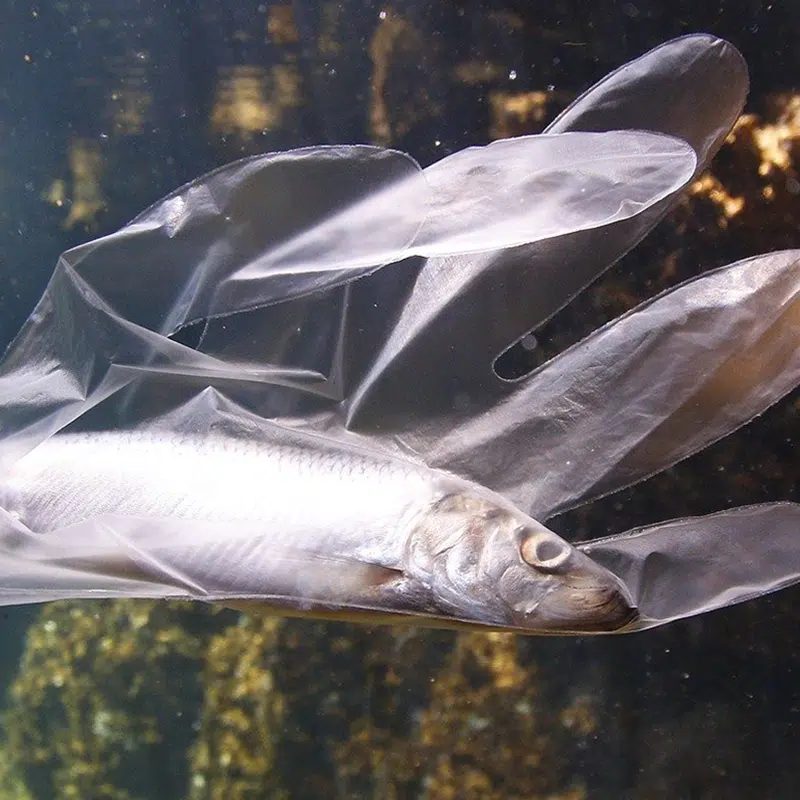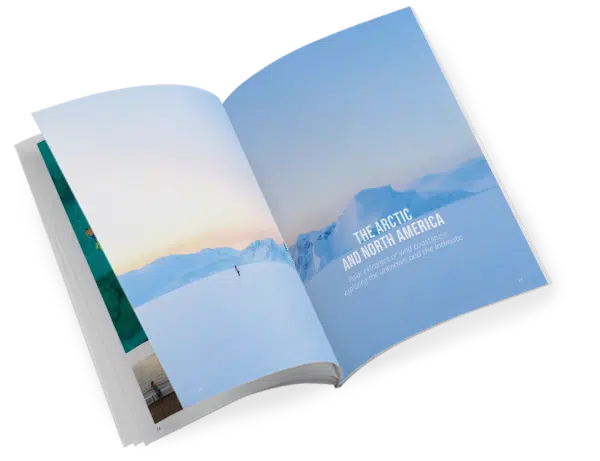Sandrine Erwin-Rose discusses the harmful effects of plastic pollution and how we can protect our oceans
Plastic pollution in our oceans is a global problem that not only has devastating effects on marine environments, but impacts human societies also. Sandrine Erwin-Rose, Expedition Operations Manager for PONANT Asia Pacific, discusses this issue and its far-reaching impacts with us, outlines what is currently being done by PONANT and others to aid this issue and what we can all do to help protect our oceans from pollution.
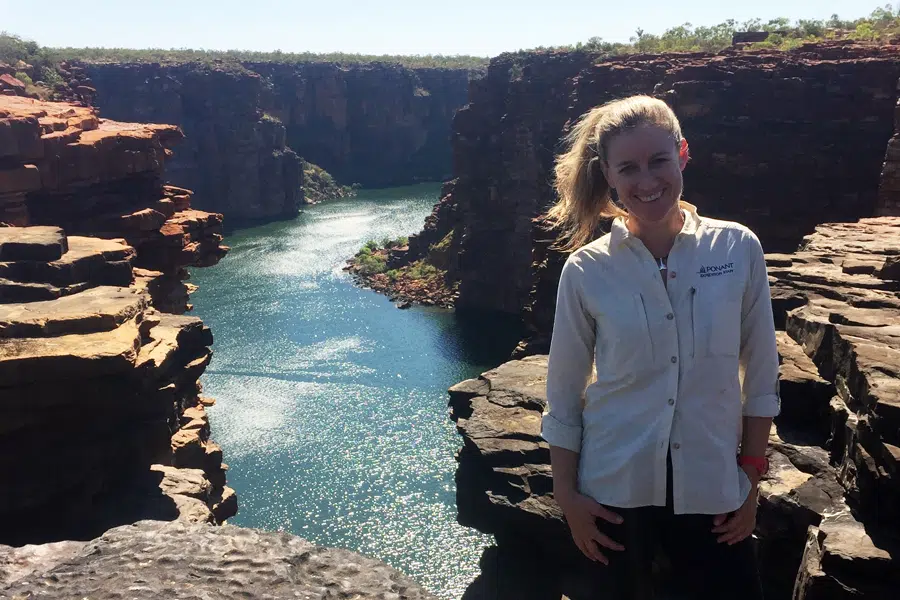
What is plastic pollution? Can you give us on overview on the plastic pollution issue we are currently facing in our oceans today and its impact?
Since plastics were first developed in the 1950’s, the ensuing pollution has become a major environmental concern both on land and most especially in the oceans. We have seen an exponential rise in the production and disposal of plastics and unfortunately plastic never really goes away. Plastic pollution can be found in even the most remote areas of the planet, a plastic bag was even found in the Mariana Trench at a depth of 10,000m! It is estimated that by 2050 there will be more plastic in the oceans than fish, that is a terrifying thought!
There are different types of plastic pollution and each one has a different impact. Macro plastics (> 5mm) such as bottles, containers, bags, balloons and Styrofoam are ingested by animals such as seabirds, fish and turtles causing a slow and painful death. Researchers estimate 90% of seabirds and 76% of fish have ingested plastic and by 2050 it will be as high as 99%. Abandoned and discarded ‘ghost’ nets trap and kill thousands of turtles, sharks, rays, dolphins and whales with an estimated 4,000-10,000 turtles entangled in Northern Australia in the last decade alone. Macro plastics carried by ocean currents (gyres) have formed massive areas of high concentrations of plastic debris which are a major hazard to wildlife. Microplastics (< 5mm) also have a major impact on ocean dwellers. These are formed either by macro plastics which have broken down over time or are fabricated such as microbeads used in cosmetics and cleansers, or fibres shed from synthetic textiles. Corals and zooplankton will consume microplastics and as these are coated in toxic bacteria this causes the animals to become sick and die. Some corals even select plastic over their usual food which is a serious concern to researchers. Whether it be sharks or dolphins killed in ghost nets or microscopic plankton ingesting plastics with toxic chemicals it is a serious, global problem which affects everyone.
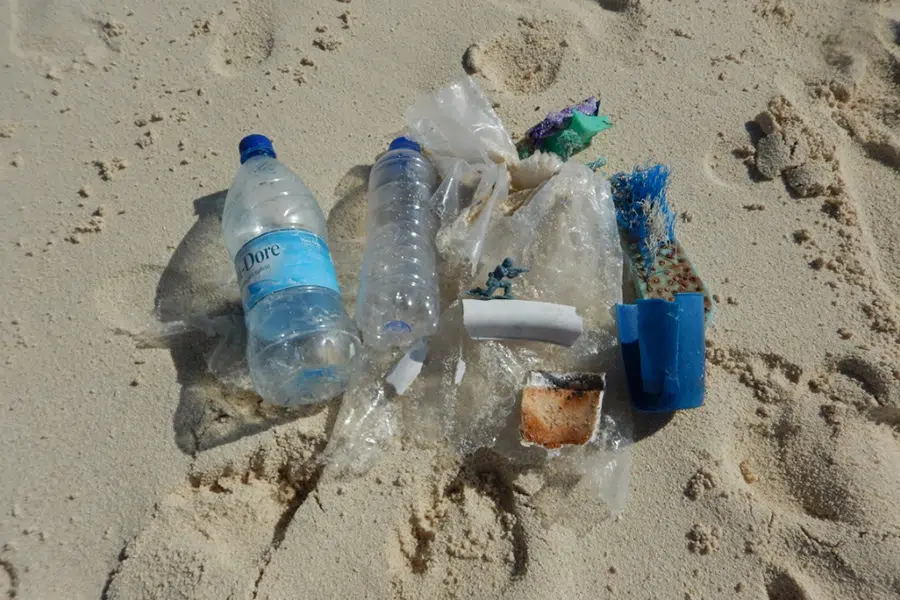
Why is it so important to protect our oceans and reduce plastic pollution and what is being done to address this problem?
Ocean food webs are intricate and delicate, and disruptions can potentially have a massive impact on an entire ecosystem. Plastic degradation in the ocean is a double-edged sword as plastics both absorb and release chemicals and harmful pollutants. When plastics break down they release a cocktail of toxic compounds into the ocean. Chemicals such as bisphenol A, which disrupts the hormonal and reproductive systems in animals, and styrene monomers (from Styrofoam) which are considered to be carcinogens, are just a few examples. In addition, plastics also absorb PBTs (persistent, bioaccumulative and toxic substances) such as dioxins and PCBs (polychlorinated biphenyls). These chemicals resist degradation and persist in the marine environment for years. Having a very low water solubility they tend to concentrate on the sea surface and are attracted to floating plastic debris like a magnet. This plastic debris is subsequently consumed by marine animals and the toxic chemicals accumulate up through the food chain, eventually consumed by humans through the seafood which we eat. This impacts people in developed countries when ordering seafood at our favourite restaurant as well as the many coastal communities which have a subsistence existence and rely on seafood as their main source of protein.
There are many organisations globally working on reducing plastic pollution in the oceans such as Plastic Odyssey, The Ocean Cleanup, The Sea Cleaners and The Seabin Project to name a few. However, everyone can have an impact – ‘Think Global, Act Local’. There are many community groups who organise clean-ups of their local areas which welcome volunteers and any visit to a beach is an opportunity to do our own beach clean-up by simply picking up any rubbish we come across and disposing of it appropriately.
PONANT continues its long-standing commitment to the environment with the PONANT Foundation, launched in 2018, of which one of its focuses is on supporting research and projects that aid the conservation of the oceans. The Aldabra Clean Up Project is one such project, supported by the foundation, that it is a collective effort of the students from Queen’s College in Oxford and volunteers from the Seychelles Islands Foundation to take on the mammoth task of removing marine debris from the Aldabra Atoll in the Indian Ocean. The ongoing support through educational campaigns that raise awareness in the communities will help preserve this fragile environment. The foundation also supports the Plastic Odyssey project based in France, which works to increase plastic pollution awareness and develop technologies to allow recycling in remote areas of the world.
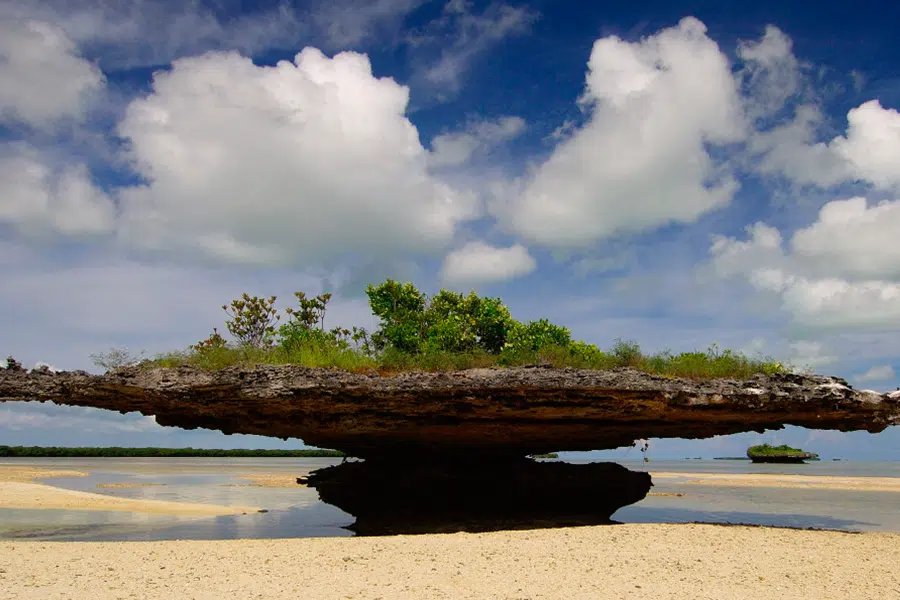
How can we help to reduce plastic pollution in our oceans?
Single-use plastics such as straws, coffee cups and beverage bottles along with cigarettes are the main forms of debris found on beaches. There are many alternatives to these: biodegradable paper or reusable stainless-steel straws, corn starch crockery, bamboo cutlery and wax-covered fabric to name a few. Australians use 2.7 million disposable coffee cups each day, having a ‘keep-cup’ for our morning coffee would eliminate these. Using refillable water bottles would save millions of single-use bottles from ending up in the oceans. Making small changes in our everyday habits can have huge impacts.
PONANT continues with the philosophy of protecting the marine environment on board by replacing single-use water bottles with reusable drink bottles and removing plastic straws and stirrers and other single-use packaging. All waste on board is sorted and sent to be recycled once the ship returns to port. Our guests also get involved with ‘beach clean-ups’ which we do as a normal part of our visits to islands and beaches, collecting plastic and other debris we find and taking it back to the ship to be disposed of responsibly. This small gesture on our part can potentially make a significant difference to the local marine life, the environment and the communities we visit. For me it is our way of giving back a little to the places and people we visit who give us so much.
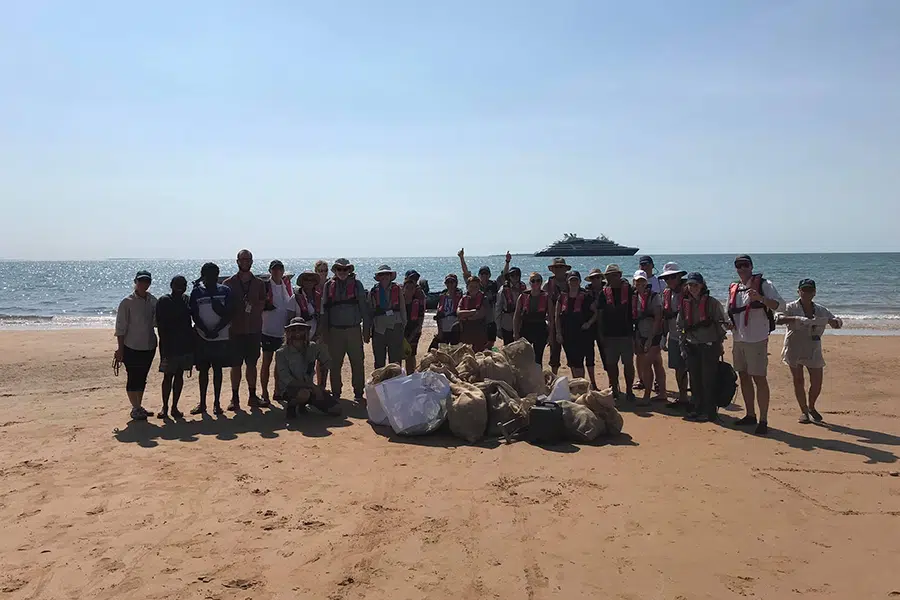
Get to know Sandrine
Working with PONANT since they first started sailing the Asia Pacific region nearly six years ago, Sandrine’s favourite part of her role is working as an Expedition Leader on board PONANT’s ships, taking guests to explore incredible destinations, providing them with unforgettable experiences and especially educating them on the environments they visit and how they can all leave a lighter footprint. Born in Corsica, her father, being a sailor, inspired her love of the ocean. Immigrating to Australia as a young child and later studying and gaining an Honours Degree in Tropical Zoology, Ecology and Marine Biology followed by an Education degree, it comes as no surprise that Sandrine’s passion is wildlife conservation and the protection of the natural environment. With salt water undoubtedly running through her veins, ocean protection is one of the many topics that are very close to her heart.
Photo credit: © Sandrine Erwin-Rose, © Xavier Moroy.
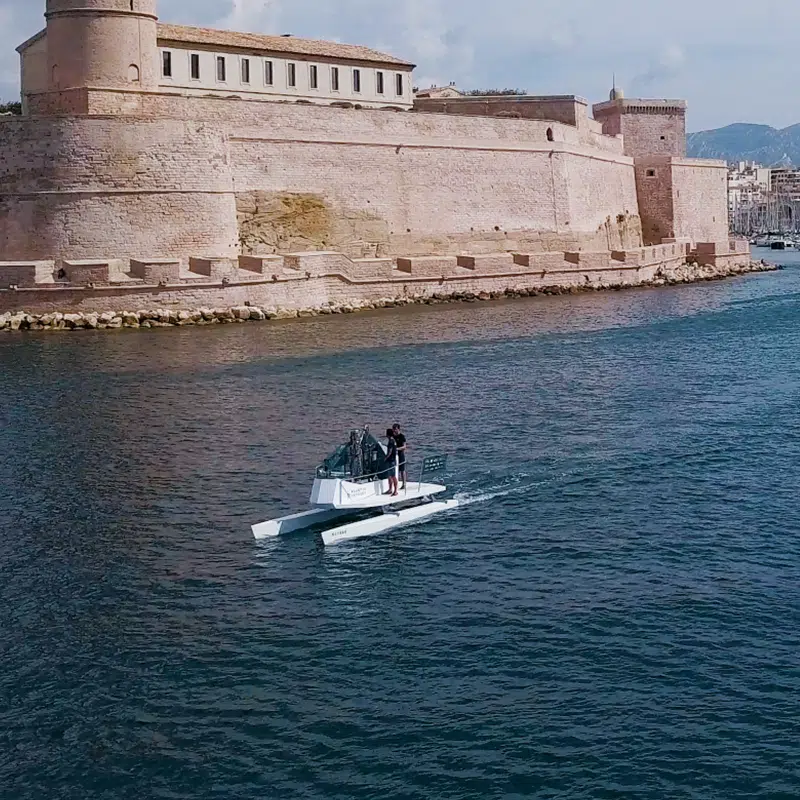
An Interview with Plastic Odyssey
We speak to the team behind this project; self-sufficient boat that will sail the world developing new solutions that will turn plastic waste into useful items.

